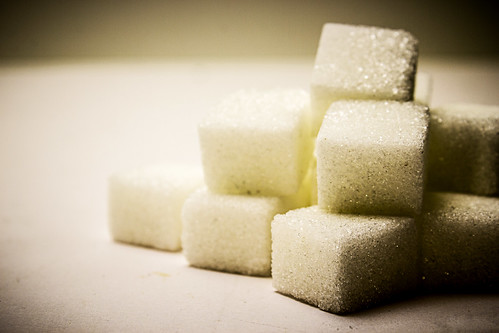Untranslatable German Words: Die Zuckerschnecke Posted by Constanze on Oct 21, 2015 in Language
Hello and welcome to another post on untranslatable German words! In these posts I’ll teach you some of Germany’s quirky and unusual words that don’t have a direct translation in English (though I’ll try to translate them, anyway)!
Today the word I want to talk about is die Zuckerschnecke. This is one for all of you romantics out there. 😉
What does die Zuckerschnecke mean?
A Zuckerschnecke is a term of endearment in German, often used by men when speaking to their girlfriends, or when trying to chat someone up.
What does die Zuckerschnecke literally translate to?
Die Zuckerschnecke is a German compound noun made up of the words der Zucker (sugar) and die Schnecke (snail). Its literal translation, therefore, is sugar snail!
If this seems like an unusual term of endearment for a woman, check out some of these other German pet names:
Mausi/Mausipupsi – Mouse
Spatz/Spätzchen – Sparrow
Bärli/Bärchen/Schmusebärchen – Bear
Hasi/Hasilein/Häschen – Bunny
Bienchen – Bee
As you can see, there’s a clear animal theme running through them. The collective term for these affectionate pet names in German is die Kosenamen.
Other, non-animal related Kosenamen are as follows (they all have roughly the same meaning of baby/sweetheart/darling):
Liebling
Schatz (from the verb schätzen – to treasure)
Herzchen (‘little heart’)
Blümchen (‘little flower’)
Engelchen (‘little angel’)
Liebchen (‘little love’)
As you can see from the last few examples above, adding ‘chen’ onto the end of words is what turns them from meaning heart (Herz), flower (Blume), angel (Engel) or love (Liebe(r) – used as a noun, as in ‘my love’) into terms of endearment. It seems that adding ‘chen’ makes words cuter in German!
How would you use die Zuckerschnecke in a sentence?
It is rather simple to use!
Du bist meine süße Zuckerschnecke!
You are my sweet sugar snail!

A different kind of Zuckerschnecke?! These pastries are often called Schnecken due to their snail-like shape. Foto: javierosh on flickr.com under Public Domain
What is the nearest English equivalent to die Zuckerschnecke?
I think people would raise their eyebrows at you if you called them a sugar snail in English, but there are many terms that include the word sugar in them, so one of those would be your best bet if you’re looking for an English translation. I think you’d agree that all Kosenamen have the same sort of meaning regardless of language, anyway – it just so happens that German ones are very animal-centred in terms of their literal translations, whereas English ones are not!
Feel free to add some more German Kosenamen in the comments, whether they’re well-known or not. 🙂
Bis bald! x

Build vocabulary, practice pronunciation, and more with Transparent Language Online. Available anytime, anywhere, on any device.
About the Author: Constanze
Servus! I'm Constanze and I live in the UK. I'm half English and half German, and have been writing about German language and culture on this blog since 2014. I am also a fitness instructor & personal trainer.






Comments:
r. audiffred:
gracias, “terrón de azucar”…
Mike:
Costanze, thanks for putting out such a fun and informative blog.
Constanze:
@Mike My pleasure. Glad you like it!
Amy:
What about terms of endearment for children?
Constanze:
@Amy Hi, Amy! Animal names are commonly used for children, too. 🙂 Other than that, my mum and grandma always called me ‘Pupperl’ (‘dolly’ – from the word Puppe). ‘Kleiner Hosenscheisser’ was a popular one in my family, too. It means ‘little pants-shitter’!
Suzanne:
Terms of Endearment or Pet Names (I don’t mean that literally): Sweetie,sweetie-pie,cutie, cutie pie, honey, darling, baby, baby doll, better-half, lover-girl (boy). Help! I can’t think of anymore in English.